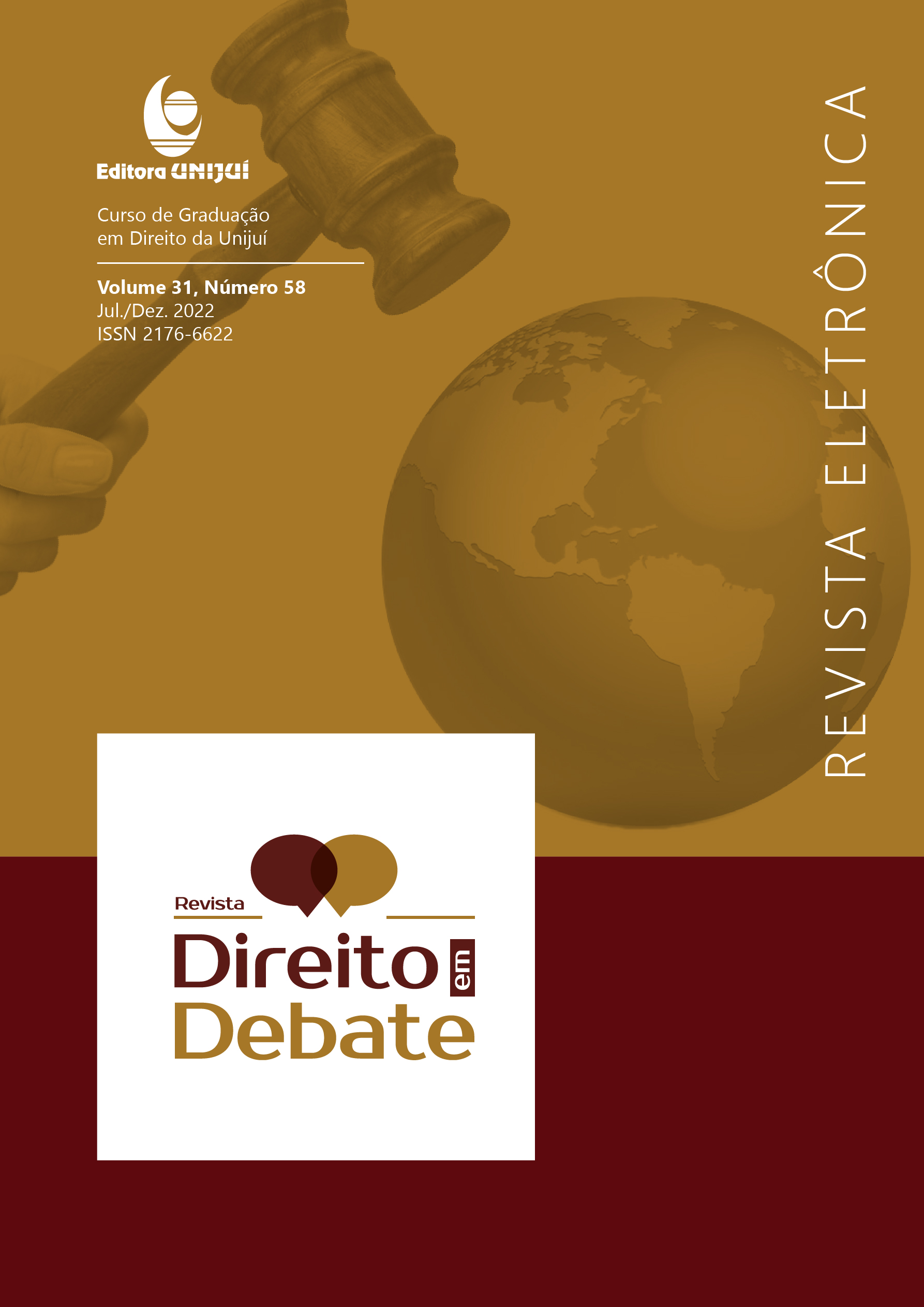The development of feminist criminology in Brazil
DOI:
https://doi.org/10.21527/2176-6622.2022.58.12057Keywords:
1. Feminist criminology, 2. Gender violence, 3. Decoloniality, 4. Maria da Penha Law, 5. FemicideAbstract
This paper aims to expose how the reception, adaption and development of gender studies in Brazil and subsequent Law reforms have created a new theoretical field of feminist criminology distinct from the Global North. It uses methodology of bibliographic review and documental analysis of Laws and courts case laws, considering the feminist theorical field. During the 80’s Brazilian literature discussed the explanation of gender violence according to three theories: male domination (Chauí), patriarchal domination (Saffioti), relational violence (Gregori). Gender theories were introduced and developed during the 90’s. Decolonial studies led to stress the deeper intersection of gender with race, social class and other discrimination marks, increasing the vulnerability of minority women, particularly black and indigenous women. The increase of gender studies supported political feminist advocacy to promote Law reforms, such as the Maria da Penha Law, the criminalisation of femicide, reforms on sexual violence and related to women in prison. Feminist criminology has both criticised Law and used it to promote gender equality on society. Judicial practices swing from advances to backlashes, indicating the conservative resistance of the juridical field to assimilate gender debates and feminist critical theories as a whole.
Downloads
Published
How to Cite
Issue
Section
License
Autores que publicam nesta revista concordam com os seguintes termos:
a. A submissão de trabalho(s) científico(s) original(is) pelos autores, na qualidade de titulares do direito de autor do(s) texto(s) enviado(s) ao periódico, nos termos da Lei 9.610/98, implica na cessão de direitos autorais de publicação na Revista Direito em Debate do(s) artigo(s) aceitos para publicação à Universidade Regional do Noroeste do Estado do Rio Grande do Sul, autorizando-se, ainda, que o(s) trabalho(s) científico(s) aprovado(s) seja(m) divulgado(s) gratuitamente, sem qualquer tipo de ressarcimento a título de direitos autorais, por meio do site da revista e suas bases de dados de indexação e repositórios, para fins de leitura, impressão e/ou download do arquivo do texto, a partir da data de aceitação para fins de publicação. Isto significa que, ao procederem a submissão do(s) artigo(s) à Revista Direito em Debate e, por conseguinte, a cessão gratuita dos direitos autorais relacionados ao trabalho científico enviado, os autores têm plena ciência de que não serão remunerados pela publicação do(s) artigo(s) no periódico.
b. Autores mantém os direitos autorais e concedem à revista o direito de primeira publicação, com o trabalho simultaneamente licenciado sob a Licença Creative Commons Attribution que permite o compartilhamento do trabalho com reconhecimento da autoria e publicação inicial nesta revista.
c. Autores têm autorização para assumir contratos adicionais separadamente, para distribuição não-exclusiva da versão do trabalho publicada nesta revista (ex.: publicar em repositório institucional ou como capítulo de livro), com reconhecimento de autoria e publicação inicial nesta revista.
d. Autores têm permissão e são estimulados a publicar e distribuir seu trabalho online (ex.: em repositórios institucionais ou na sua página pessoal) a qualquer ponto antes ou durante o processo editorial, já que isso pode gerar alterações produtivas, bem como aumentar o impacto e a citação do trabalho publicado (Veja O Efeito do Acesso Livre).
e. O(s) A(s) autores(as) declaram que o texto que está sendo submetido à Revista Direito em Debate respeita as normas de ética em pesquisa e que assumem toda e qualquer responsabilidade quanto ao previsto na resolução Nº 510/2016, do Conselho Nacional de Ética em Pesquisa.
f. Os autores declaram expressamente concordar com os termos da presente Declaração de Direito Autoral, que se aplicará a submissão caso seja publicada por esta Revista.
g. A Revista Direitos em Debate é uma publicação de acesso aberto, o que significa que todo o conteúdo está disponível gratuitamente, sem custo para o usuário ou sua instituição. Os usuários têm permissão para ler, copiar, distribuir, imprimir, pesquisar, criar links para os textos completos dos artigos, ou utilizá-los para qualquer outro propósito legal, sem pedir permissão prévia do editor ou o autor. Estes princípios estão de acordo com a definição BOAI de acesso aberto.










